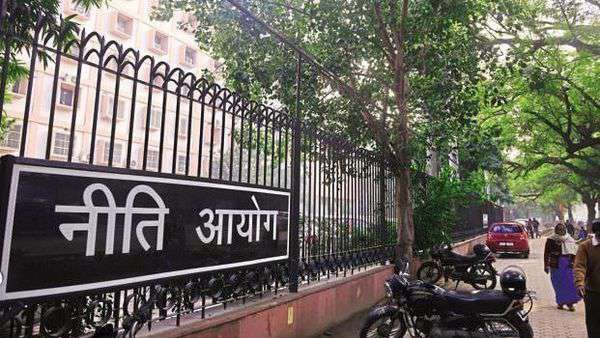 19-11-2019
19-11-2019
NITI Aayog proposes mandatory health insurance for all

 Insurance Alertss
Insurance AlertssNITI Aayog proposes mandatory health insurance for all
NEW DELHI : NITI Aayog has proposed introduction of a mandatory standard basic benefit as the basis for all health insurance coverage in India. In its report titled "Health System for a New India: Building Blocks", released on Monday, the government think tank pointed out that India does not only have a low level of risk pooling that is very fragmented but also highly fragmented benefits packages provided by the existing risk pooling schemes.
Stating that both the benefits package set by Ayushman Bharat- Pradhan Mantri Jan Arogya Yojana (AB-PMJAY) on the demand side as well as the less explicit benefits package set by National Health Mission (NHM) on the supply-side though preliminary versions of a potential standardized benefits package, government may further explore the basic benefit for future risk pooling options.
"There are important health insurance and public funding efficiency and equity reasons for introducing a standard benefits package as reference for all insurance coverage in India. Benefits package fragmentation occurs not only in voluntary commercial health insurance (which traditionally does provide a diverse set of health insurance products) but also among publicly-subsidized schemes and packages, resulting in publicly-funded coverage inequity," it said.
The report highlighted that most large federal countries face these differences across states and, in most of them, there is agreement that the federal level needs to play an active role in reducing inter-state inequality, by targeting the poor in the poorest states with higher funding contributions for healthcare through conditional or unconditional fiscal transfers. "If central governments play an equalization role, it is very difficult to do so in the absence of a standard benefits package, which would set the minimum level of services that a country wants all members of society to have, as well as can afford and use to estimate costs and fund allocations," the report said.
"In the absence of such standardized reference and gap identification, it is impossible to judge the gaps that the central government equalization and policy facilitation roles needs to target. A standard benefits package also plays a substantial role in guiding the future development of commercial health insurance. It would ensure coverage of essential and insurable events under risk pooling arrangements," it added.
The report has also raised the issue of unregulated health insurance in India. The report stated that the standard benefit package would be in contrast to the current practice of providing relatively shallow coverage for mostly in-patients. Thus, a standard benefits package would mitigate the effects of the consumer blindness tendency of households and the shallow coverage of unregulated insurance, it said.
The absence of a minimum level benefit mandate in commercial insurance, the report stated, makes consumers believe they have insurable events insurance coverage when they have, in general only, pre-payment coverage, with substantial risk dumping to the public sector and fiscal risk in the short, medium and long term when non poor consumers could afford a more insurable event benefits package.. "Therefore, standard minimum coverage is also essential for the healthy development of commercial insurance aligned with long term sustainability of the system," the report said.
India's very high and slow-to-decrease levels of out-of pocket (OOP) financing from households accounts for more than 64% of total health expenses in the country. The report further said that high OOPs are the result of ineffective risk pooling and pre-payment systems. These are likely to remain high for the next decade unless substantial improvements are made to risk pooling in the country.
Source: Live Mint
